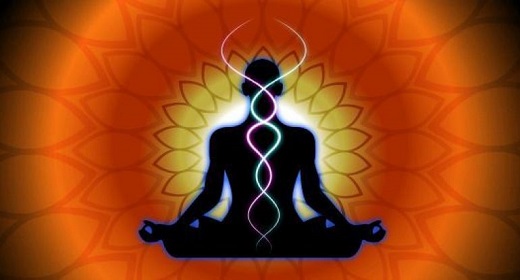by Deepak Chopra™, M.D.: Wanting to be yourself is a natural desire, but also a confusing one. The mind is a wanderer, going anywhere it likes.

All day it wanders not only from thought to thought but from self to self. Without realizing it, we slip from one self to another as the situation demands. This fluid sense of identity allows you to choose your best self while avoiding the pitfalls of the others.
This is a fascinating possibility, all the more because the vast majority of people don’t realize that they have more than one self. At a minimum, everyone has three.
1. Your Social Self
This is the image you project to the world. Your social self dictates how you behave when other people are around. You might be guarded, shy, and introverted around others; you might on the other hand be open, candid, and extroverted. It takes a lifetime to develop and maintain your social self. It’s fair to say that two people project the same image, but certain things are consistent for almost everyone.
- You want to project a good image, which leads you to make more of your positive qualities and less of your negative qualities.
- Your ego serves to protect your image.
- You are very sensitive to how others see you—their good and bad opinion matters.
- Your social self is strongly inclined to conformist behavior—it wants to belong.
These qualities don’t tell the whole story—we all display very complex social behavior—and the biggest difference between two people is how comfortable they are with their place in society. Factors like racial prejudice, income inequality, and gender bias can bring pain and suffering to your social self.
Yet the essential pitfall of the social self is that it is just an outer shell. Identifying with your outer shell (by focusing on money, possessions, status, power, and popularity) makes life meaningless in the long run. Your potential has been denied in favor of a presentable social package.
2. Your Private Self
Your private self is the “me” you identify with when you are alone. Because other people aren’t watching and judging, the private self is liberating—you can unwind, relax, and do what you want to do. Whether or not you feel comfortable with your private self makes a big difference. Here is where relationships are formed. Your private self will determine what kind of partner or spouse you are, how much you are willing to share with someone else, and how you feel about intimacy.
As complicated as the social self can be, the private self is infinitely complex—it embraces every experience you’ve ever had. But certain things are consistent for almost everyone.
- Your private self is subject to mood swings.
- You are open to self-judgment.
- If you are beset by depression or anxiety, your private self has no control over them. Negative emotions are generally free to roam the mind at will.
- Being rejected for your private self is extremely painful.
- The yearning for love, kindness, understanding, sympathy, approval, and acceptance is located here, and all these yearnings make you vulnerable.
The private self is your home base for thoughts, feelings, desires, and impulses. You derive your motivation here. The possibilities for expansion are unlimited—unlike your social self, your private self isn’t a shell.
Yet for every opportunity there is a risk involved. The possibilities for expansion are suppressed by self-doubt. Inner conflicts can keep you stuck for years, unable to move in the direction of fulfillment. If you are very unfortunate, you get trapped in a mind-made purgatory that feels inescapable.
Your inner life might be bright, yet there is always the expectation that happiness is temporary and the future uncertain. Your private self cannot protect you from the future.
3. Your True Self
The self that has the most opportunities and no pitfalls is your true self. To reach it, you stop projecting an outer image to society, and you transcend the endless complications of the private self. Very few people live from the level of the true self, because it doesn’t develop along psychological lines. Your experience doesn’t do anything to your true self. Therefore, if you think you are having the worst day of your life or the best doesn’t register with your true self.
Having a good or bad day occupies a lot of attention, of course, so finding your way past your other selves is a challenge. People are inspired to accept the challenge when they get on the spiritual path. What motivates them has certain features that apply to everyone.
- Glimpses of the true self are blissful. Bliss is a strong motivator. It is glimpsed in moments of love, compassion, beauty, creativity, kindness, and insight.
- A peak experience or “aha!” moment can reveal the untapped reality behind the mask of everyday life.
- The milieu of the true self is peaceful and quiet, which has a natural appeal compared with frantic mental activity and stress.
- The world’s wisdom tradition paint an inspiring portrait of a self that is untouched by pain and suffering. These descriptions have the ring of truth.
- As satisfying as everyday life might be, the urge for something more is inescapable—we are motivated to evolve from the moment we were born.
I’ve only sketched in the qualities of the true self, but even a quick thumbnail can trigger a moment of recognition. Whether it feels far away or close, the true self vibrates with authenticity. You have a sense, faintly or strongly, that the real you is calling.
The call is silent, yet it has been heard by everyone throughout the centuries who turned to the spiritual path. In Sanskrit there is a term, Swarupa, for the magnetic pull of the Self—the capitalization refers to the true self. In response, you have only to attune yourself to the truth about who you are. This is revealed in meditation but also in behavior that favors the values of the true self: love, compassion, empathy, kindness, creativity, insight, and personal evolution.
By paying attention to these expressions of your true self, you strengthen your connection to it. Your other two selves, the social self, and the private self, will begin to diminish in importance. You will stop identifying with them and the dominance they once had. There are many experiences awaiting on the spiritual path, but the most important is the first one, the discovery that your true self exists. One glimpse of the true self is enough to point you toward the “real” reality masked by everyday life, and then the path of light has opened.




















































